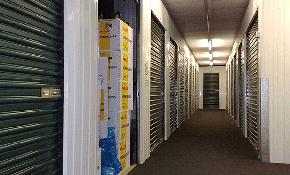Standard procedure during real estate transactions typically requires that the lender and/or buyer conduct the environmental due diligence on the property, but there are some good reasons for the seller to do their own due diligence.
I came across a story recently that illustrated this point.
A real estate investment firm was selling an industrial park in Texas. It had been purchased before the days of Phase 1 Environmental Site Assessments or ESA (early 1980’s). The firm had aerial photographs of the site on file. There was a group of strange circular pattern visible in the photographs in an open unpaved area of the site.
The buyer’s environmental consultant researched historical records for the property and found that a skeet-shooting range had been located on the property in the 1950’s. The soil was tested and found to have lead contamination (above any naturally occurring lead content) which required the soil to be removed and disposed of properly (as hazardous waste, a costly endeavor!). This was, of course, not wonderful news for the seller. The seller would likely be a responsible party for the cleanup (even though they did not create the problem).
Sellers must make a decision on the risks of leaving the status of properties to chance before putting them up for sale. They can either 1) wait and hope that no issues are uncovered during the buyer’s or lender’s due diligence, or 2) conduct their own Phase 1 Environmental Site Assessment. The advantages of doing pre-sale environmental due diligence include:
- The information is out in the open and hidden surprises don’t slow down the transaction.
- Potentially expedite the Phase 1 ESA process for the lender or buyer’s consultant by providing them the pre-sale environmental report.
- If potential concerns are identified, the seller has an independent party (their consultant) to discuss the concerns with.
- The seller can conduct Phase 2 Environmental Testing to quantify the concern, or even conduct environmental remediation to try and eliminate the concern before taking it to sale.
- This could help avoid the stigma of a “contaminated site” or having to negotiate or reduce the sale price due to environmental liabilities.
While most sellers will opt not to do their own due diligence, it is particularly prudent in some cases like the above story where no due diligence was originally done on the property. It is also a good idea if the property has been used for a high risk operation (such as industrial, as was also the case in the above story), so the seller can be assured that the property has a “clean bill of health” before taking it to market.

















 Copyright © 2024 ALM Global, LLC. All Rights Reserved.
Copyright © 2024 ALM Global, LLC. All Rights Reserved.